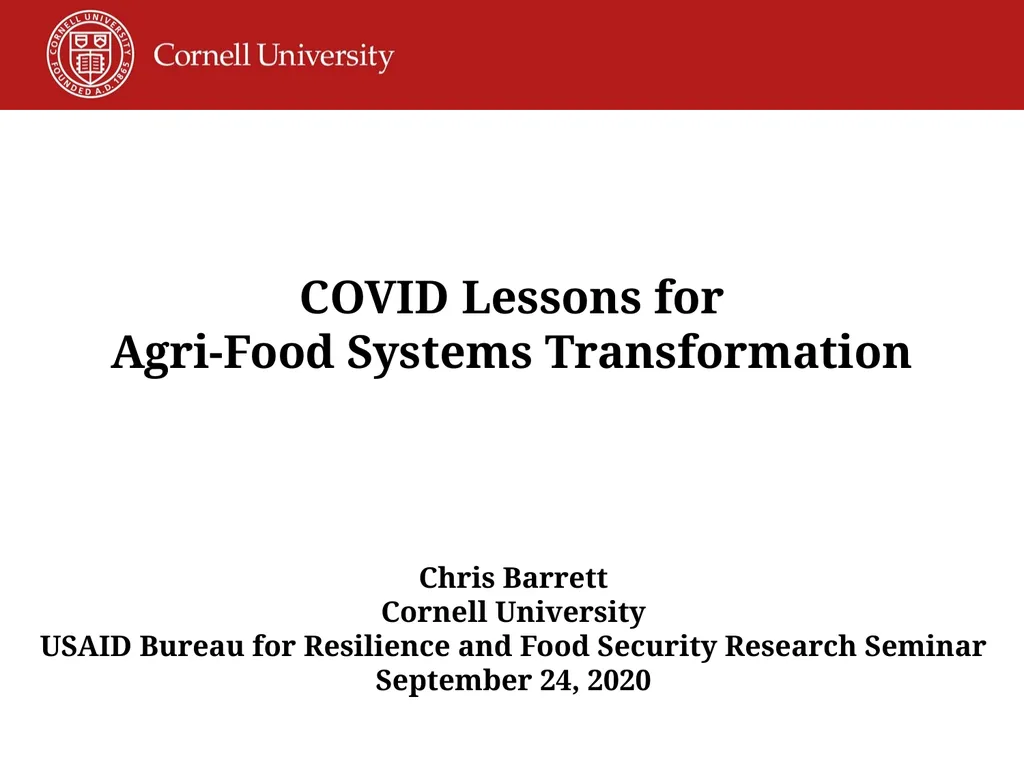
Author : giovanna-bartolotta | Published Date : 2025-05-07
Description: COVID Lessons for Agri-Food Systems Transformation Chris Barrett Cornell University USAID Bureau for Resilience and Food Security Research Seminar September 24, 2020 World accustomed to supply shocks to primary production or to logistics.Download Presentation The PPT/PDF document "" is the property of its rightful owner. Permission is granted to download and print the materials on this website for personal, non-commercial use only, and to display it on your personal computer provided you do not modify the materials and that you retain all copyright notices contained in the materials. By downloading content from our website, you accept the terms of this agreement.
Here is the link to download the presentation.
"COVID Lessons for Agri-Food Systems Transformation"The content belongs to its owner. You may download and print it for personal use, without modification, and keep all copyright notices. By downloading, you agree to these terms.













